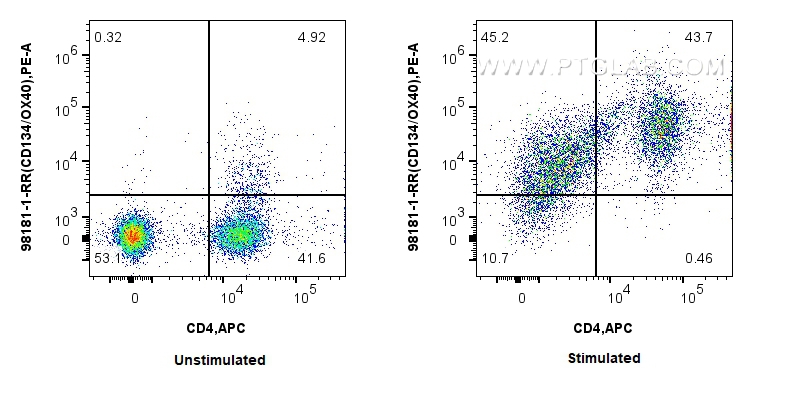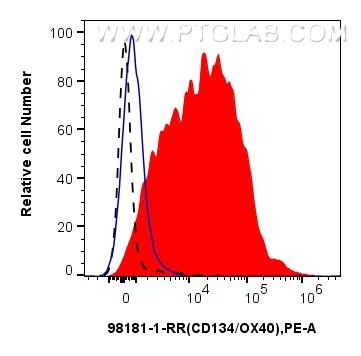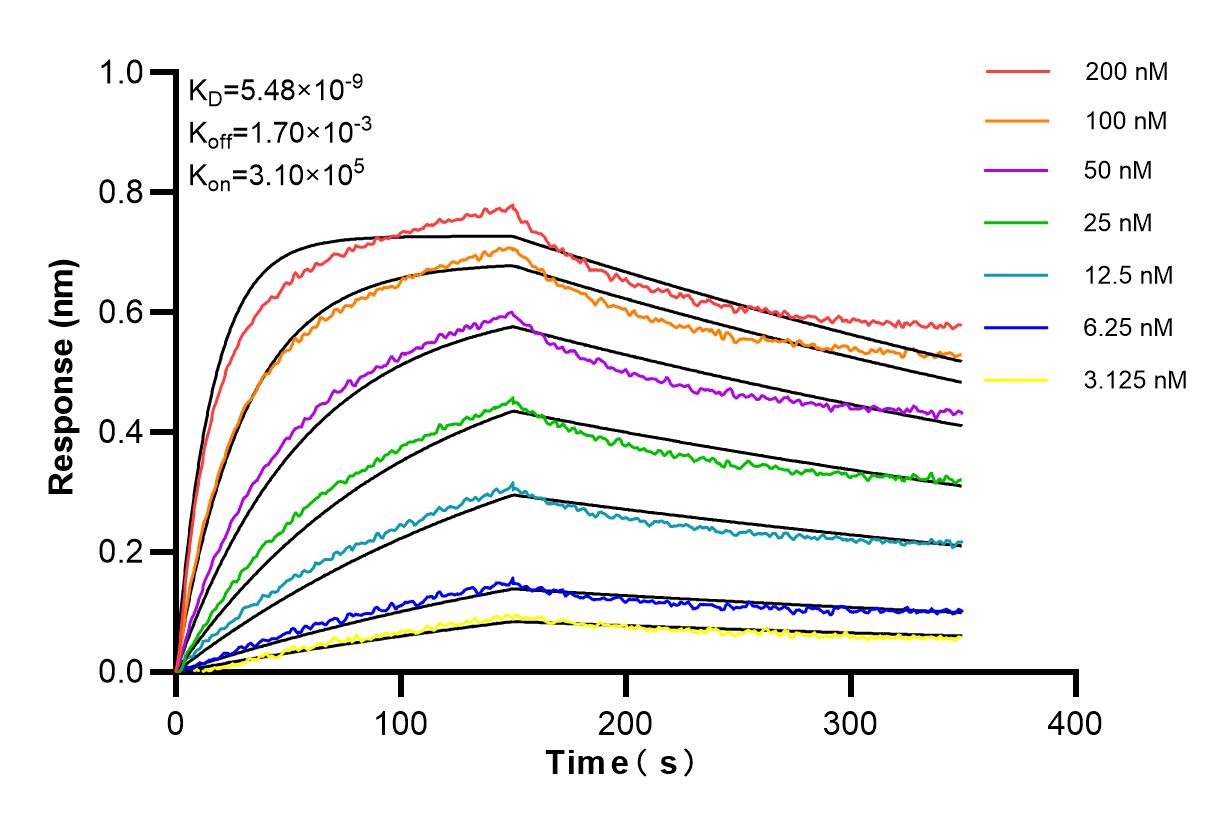Anti-Human CD134/OX40 Rabbit Recombinant Antibody
CD134/OX40 Uni-rAbTM Recombinant Antibody for FC
Host / Isotype
Rabbit / IgG
Reactivity
human
Applications
FC
Conjugate
Unconjugated
CloneNo.
241398G7
验证数据展示
经过测试的应用
| Positive FC detected in | PHA treated human PBMCs |
推荐稀释比
| Application | Dilution |
|---|---|
| This reagent has been tested for flow cytometric analysis. It is recommended that this reagent should be titrated in each testing system to obtain optimal results. | |
| Sample-dependent, Check data in validation data gallery. | |
产品信息
98181-1-RR targets CD134/OX40 in FC applications and shows reactivity with human samples.
| Tested Applications | FC Application Description |
| Tested Reactivity | human |
| Immunogen | Recombinant protein 种属同源性预测 |
| Host / Isotype | Rabbit / IgG |
| Class | Recombinant |
| Type | Antibody |
| Full Name | tumor necrosis factor receptor superfamily, member 4 |
| Synonyms | TNFRSF4, OX40L receptor, OX40, CD134, ACT35 antigen |
| Calculated Molecular Weight | 29 kDa |
| GenBank Accession Number | NM_003327 |
| Gene Symbol | CD134 |
| Gene ID (NCBI) | 7293 |
| Conjugate | Unconjugated |
| Form | Liquid |
| Purification Method | Protein A purfication |
| UNIPROT ID | P43489 |
| Storage Buffer | PBS with 0.09% sodium azide, pH 7.3. |
| Storage Conditions | Store at 2 - 8°C. Stable for one year after shipment. |
背景介绍
实验方案
| Product Specific Protocols | |
|---|---|
| FC protocol for CD134/OX40 antibody 98181-1-RR | Download protocol |
| Standard Protocols | |
|---|---|
| Click here to view our Standard Protocols |



